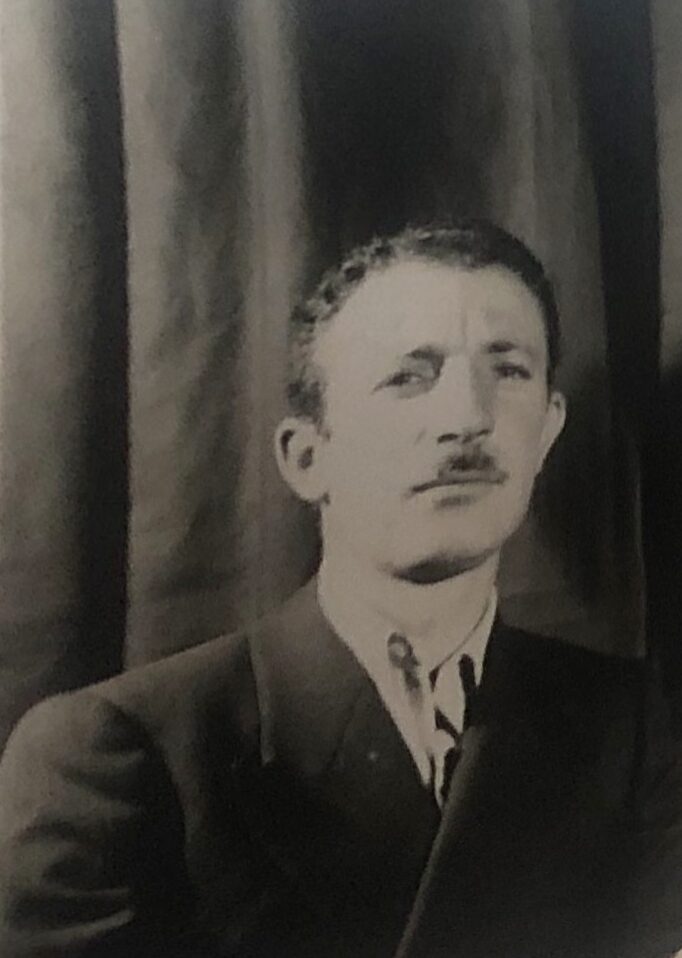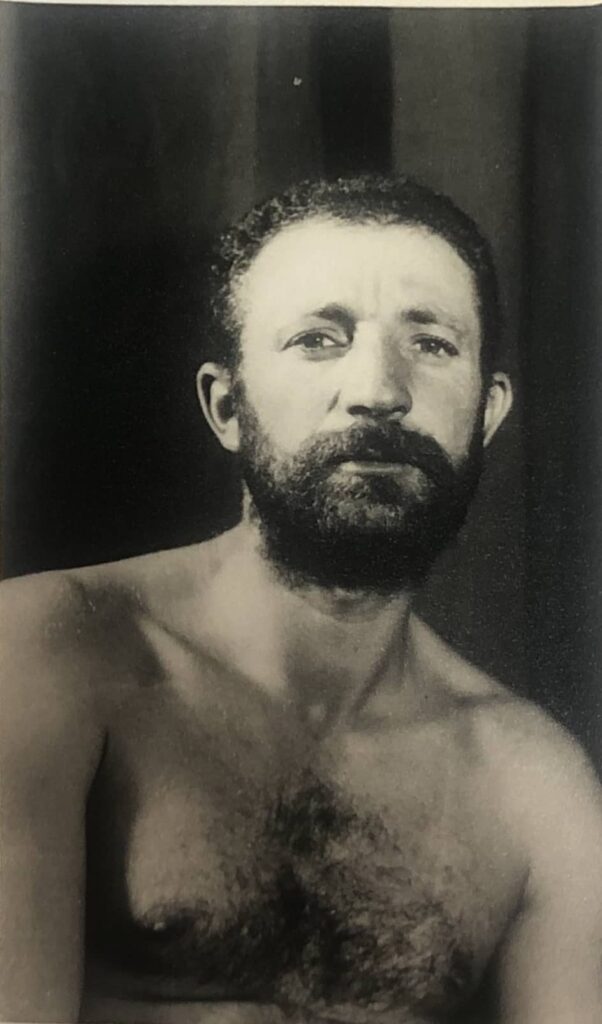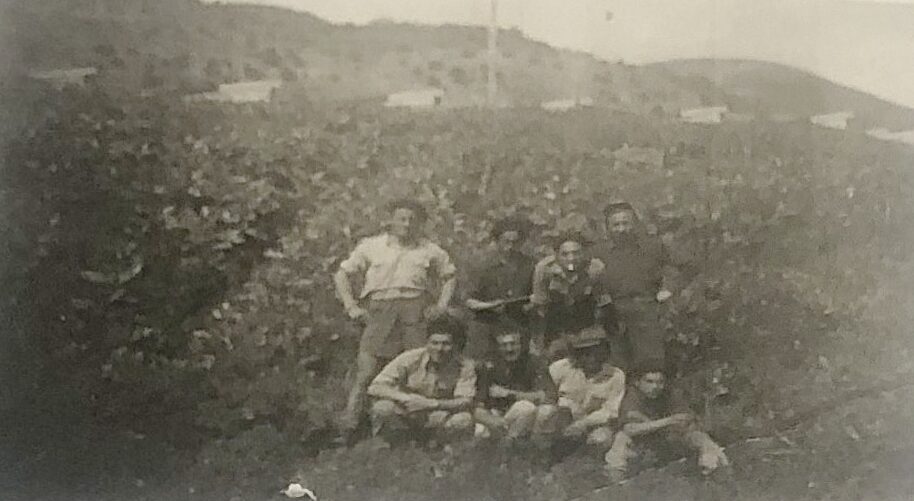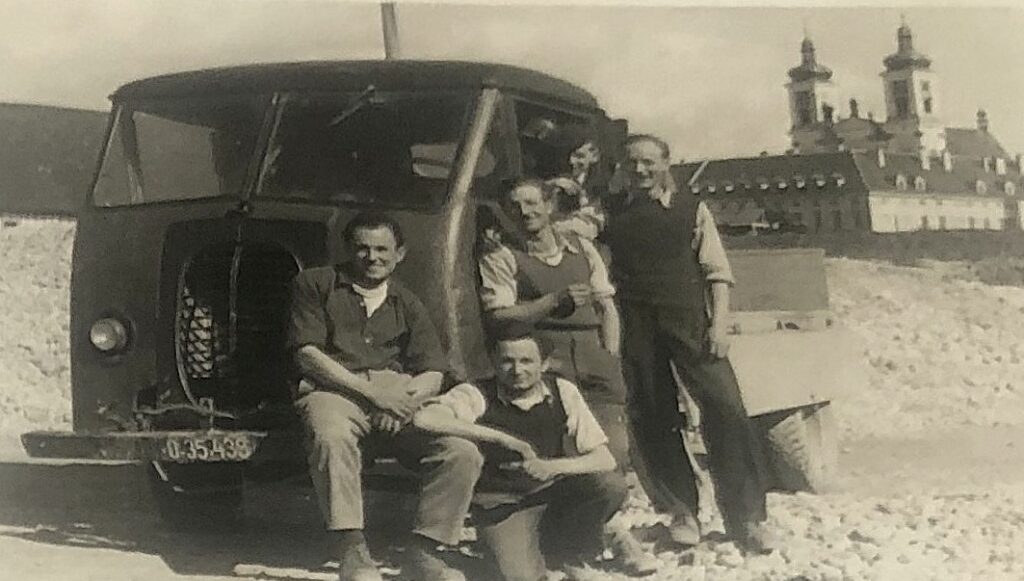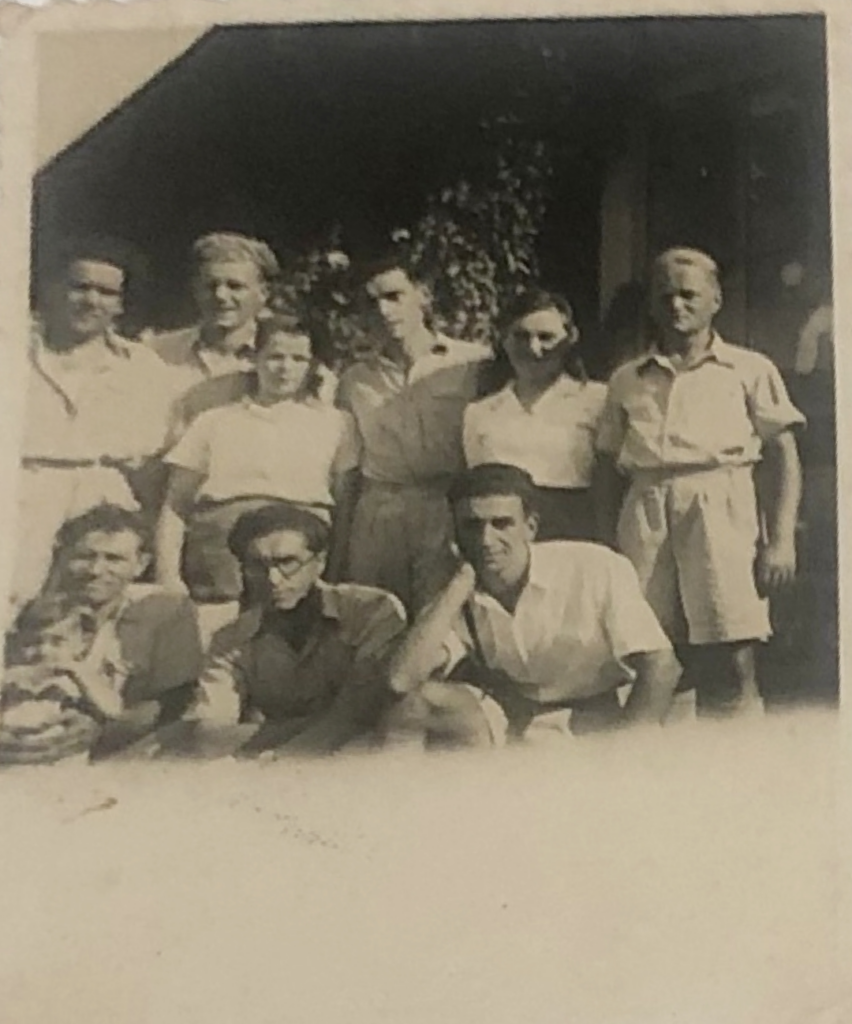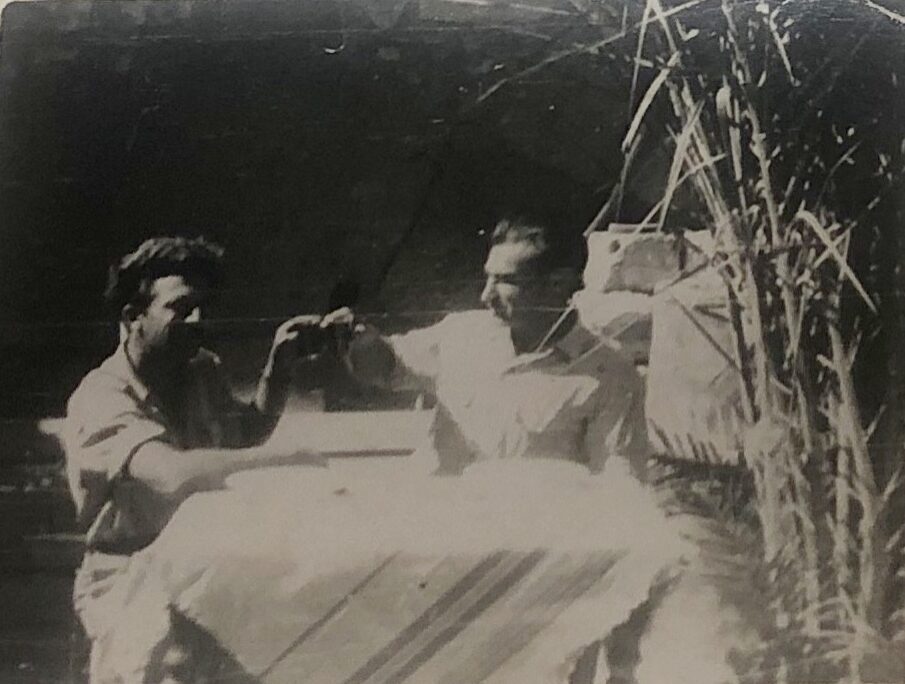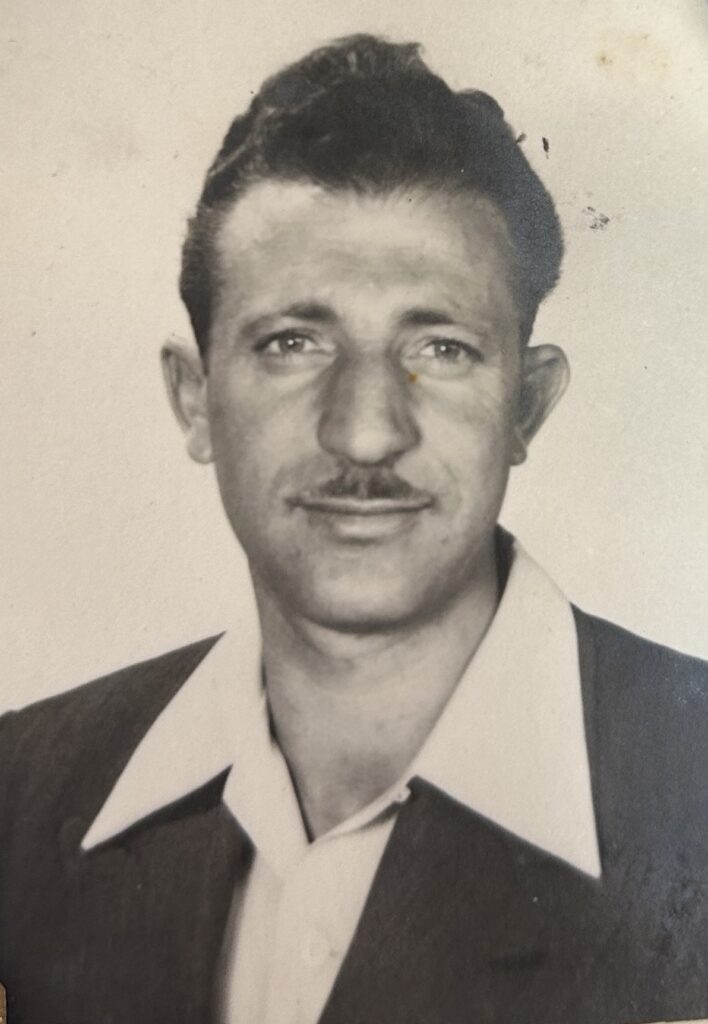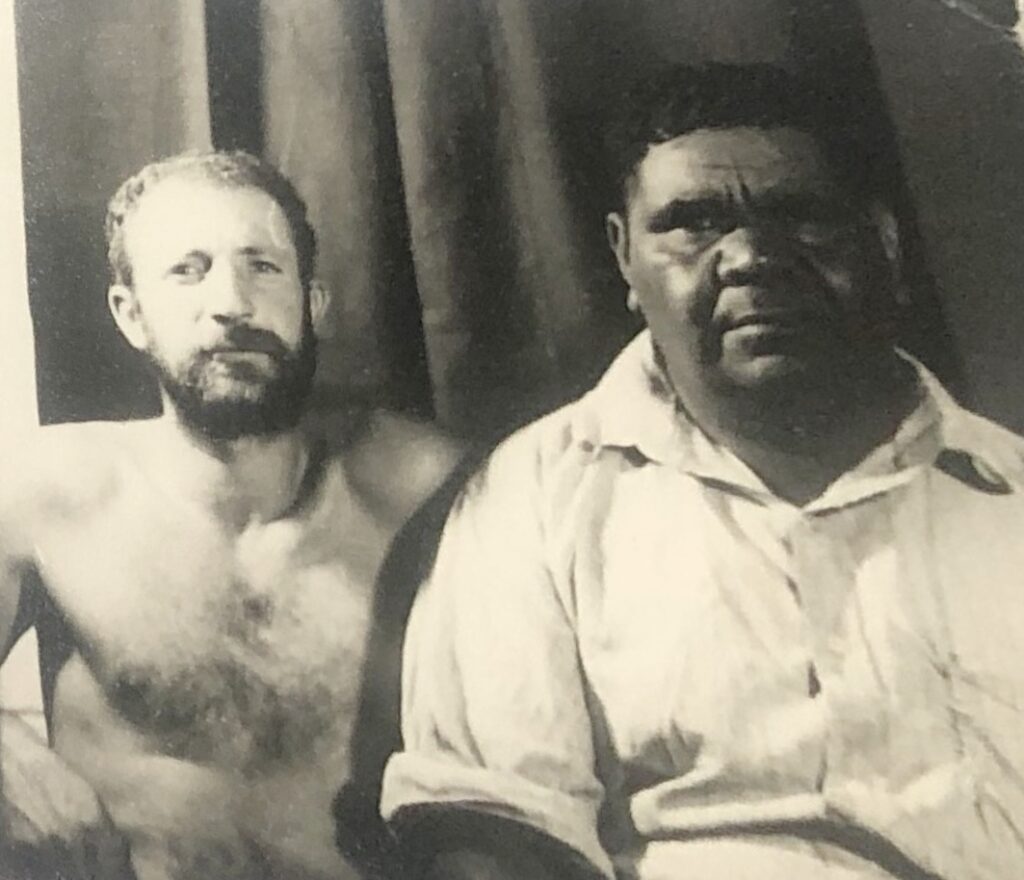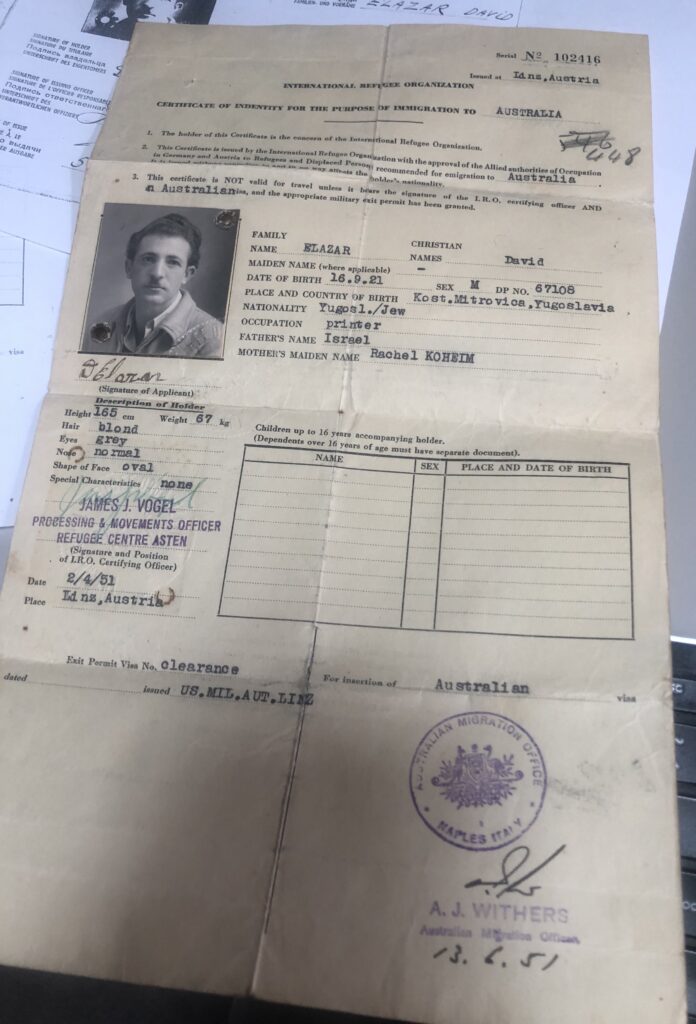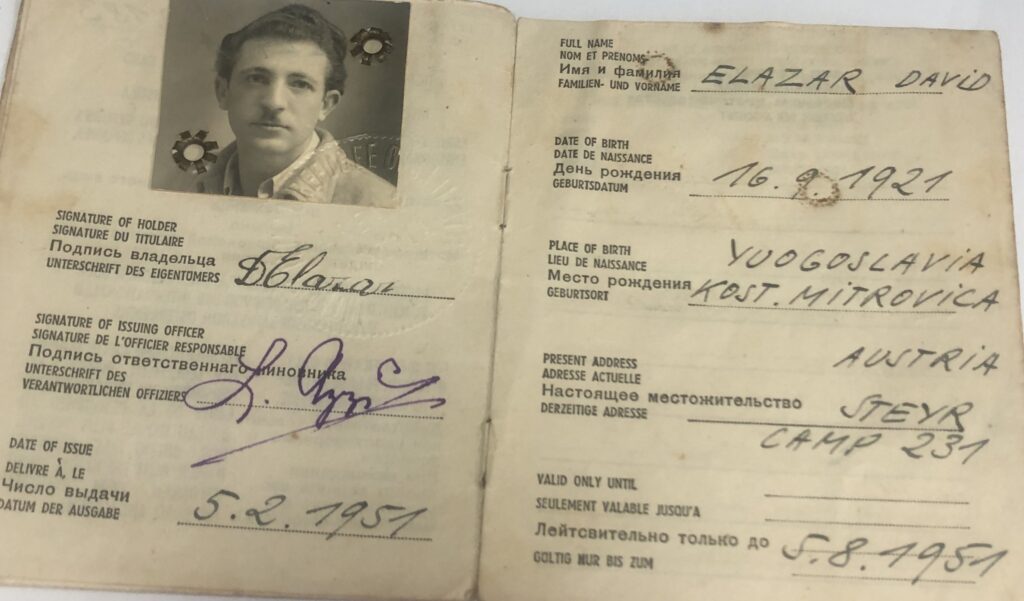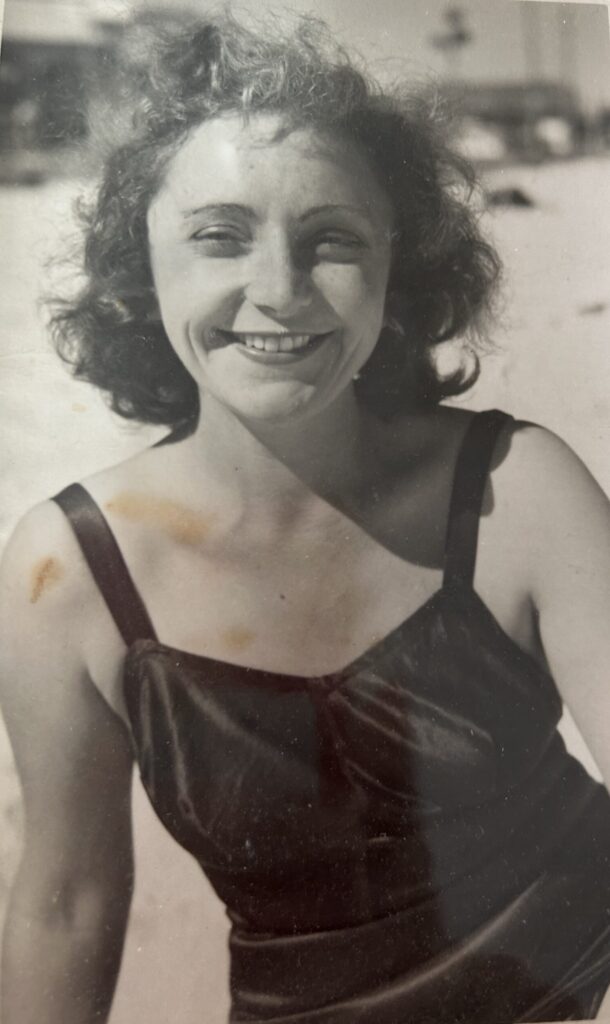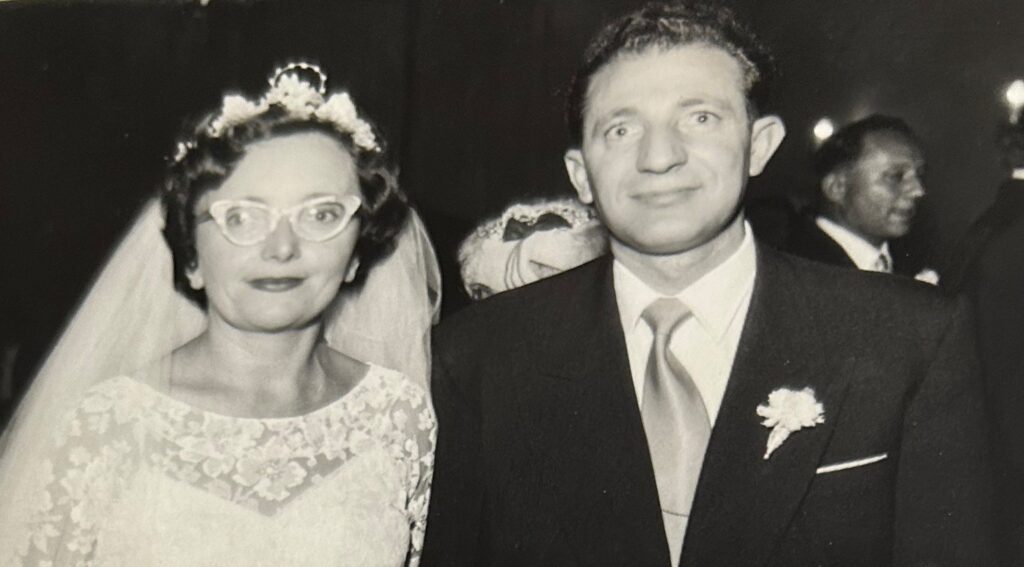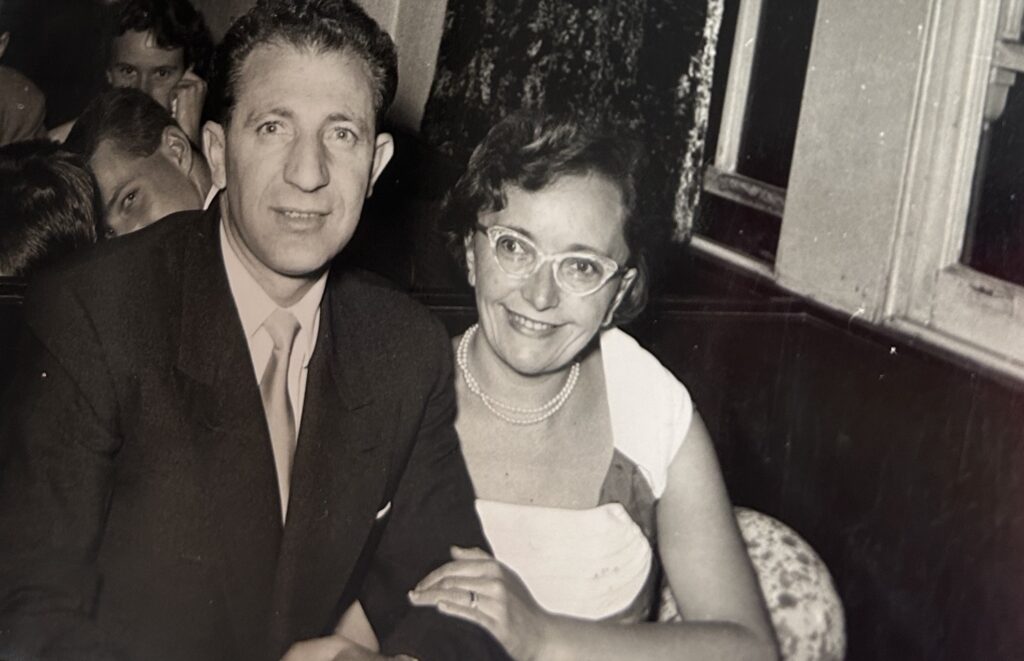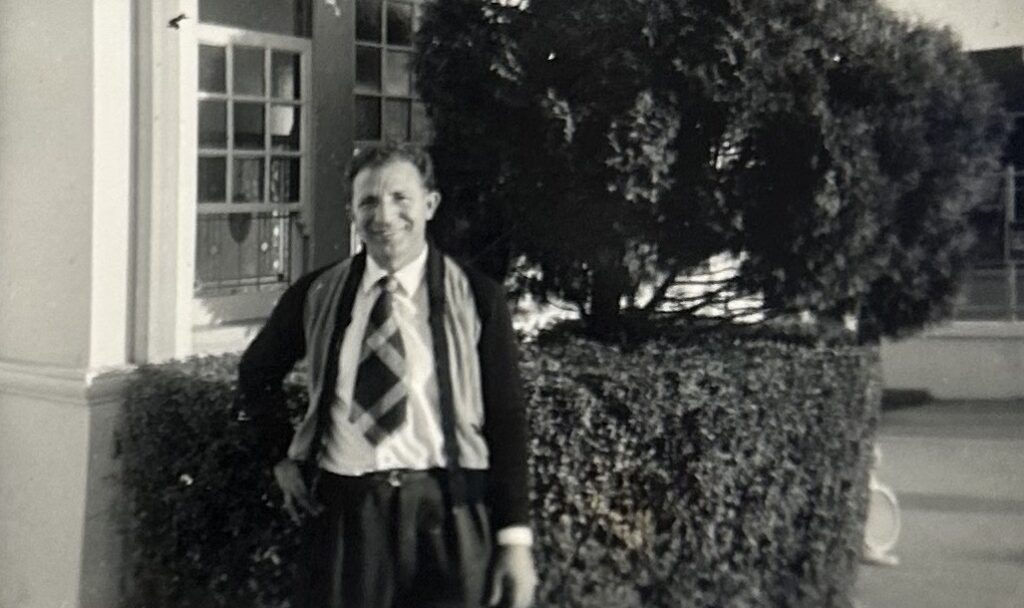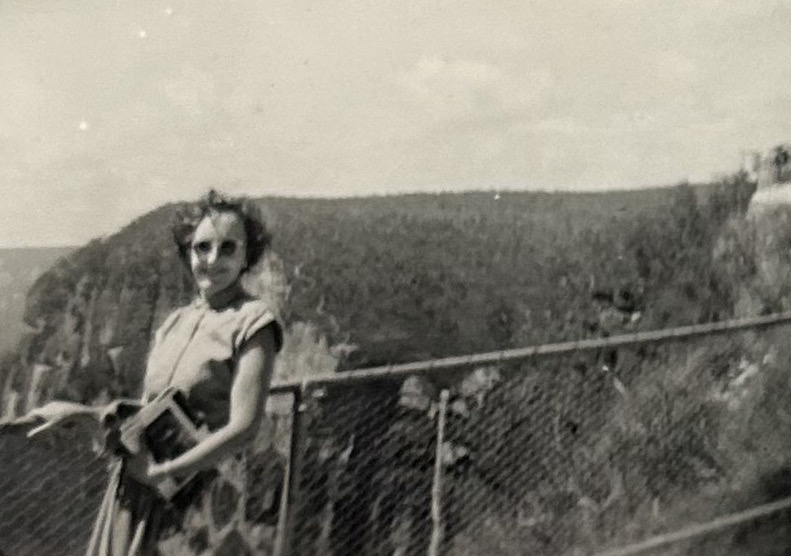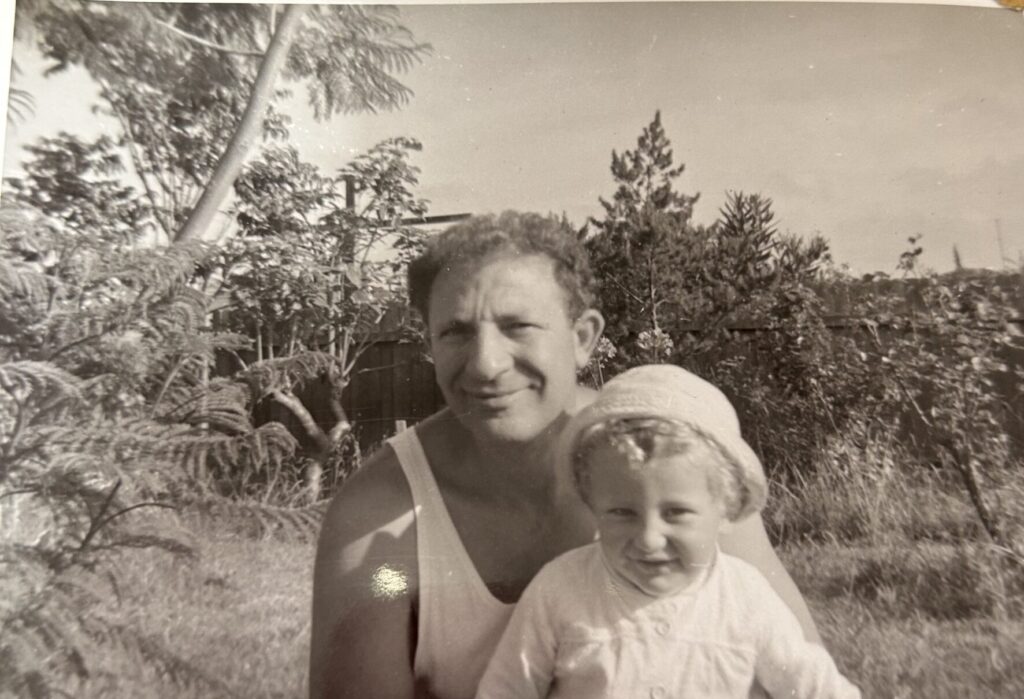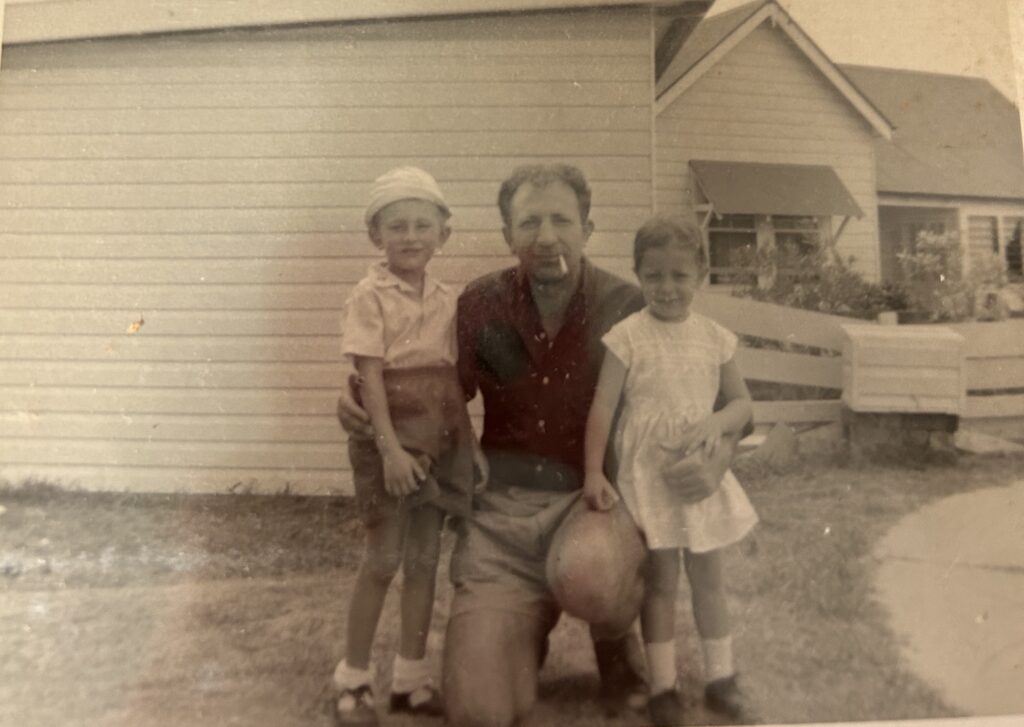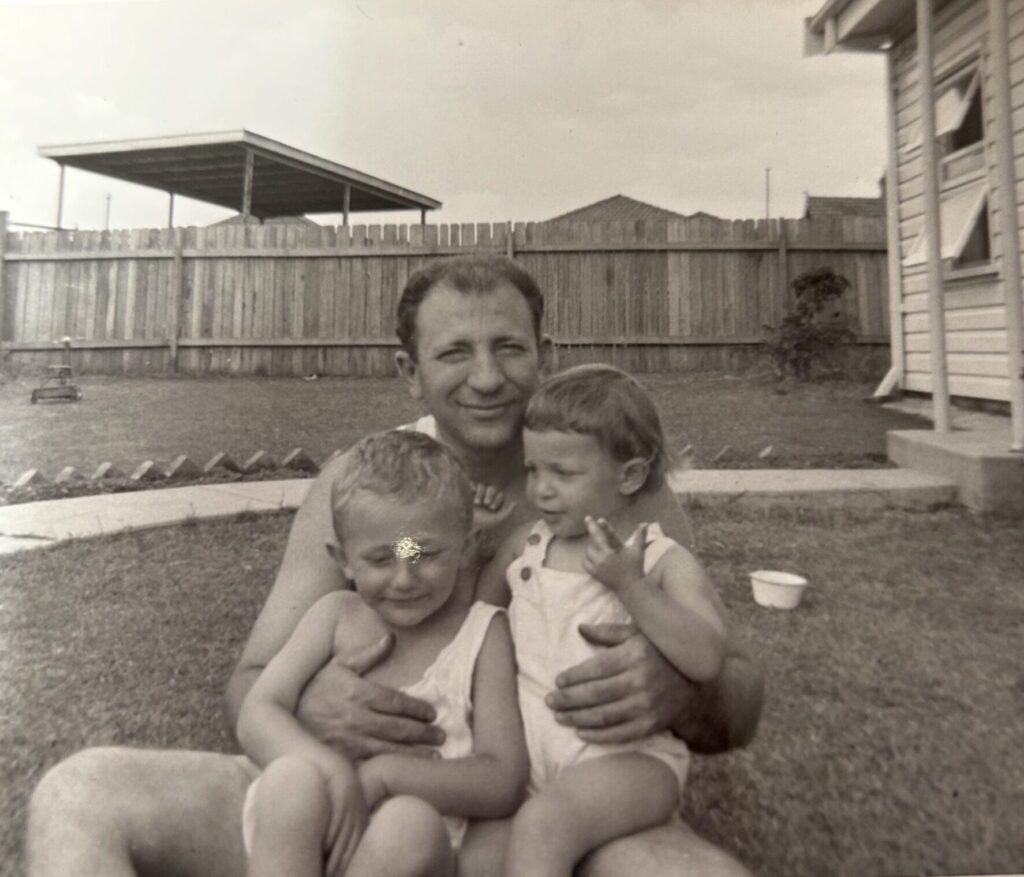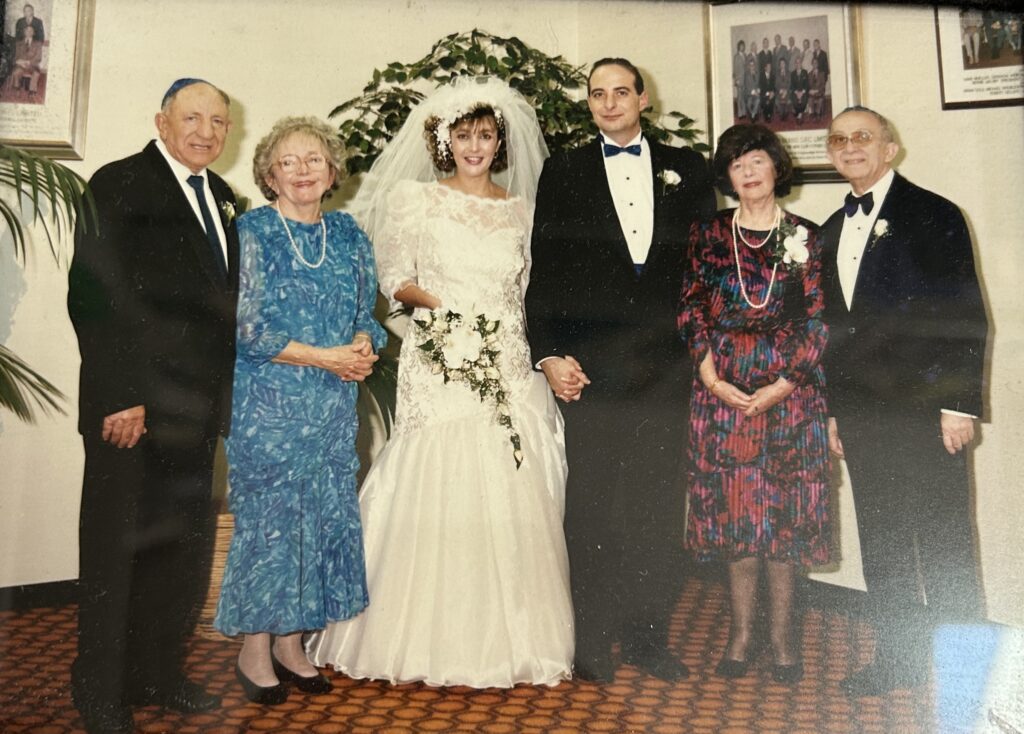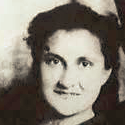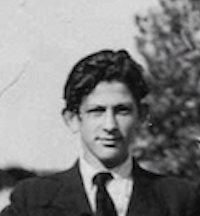David Elazar was born on September 16, 1919, in Kosovska Mitrovica, then part of Yugoslavia. David had eight siblings, Moshe, Nissim, Yaakov, Mendel, Denisa, Regina, and Viktoria. David was the middle child among them. His father, Yisrael, worked as a merchant trader, and his mother, Rachel (Rivka), was the family’s homemaker. David’s mother passed away before the war. As a boy, David endured a difficult childhood but loved to ski and would often ski to school in the winter.
When the war broke out in 1939, David was eager to fight against the Nazis. His mother even changed the birth year on his documents to make him eligible to join the Russian Army. David and his brothers joined the war by fighting with the Russians and Serbs. As David and his brothers were on the front-line fighting, Germany inched closer to Yugoslavia. The Nazis occupied modern-day Serbia and used the region as an army base. Germany began to employ barbaric and scorched earth tactics in Serbia, with a policy that for every German killed, they would shoot the population of an entire village.
In 1941, the Germans massacred the Jews in Kosovska Mitrovica, and everyone in David’s family was presumably shot dead, except for his brothers, who were fighting. One of David’s older sisters, Viktoria, who was newly married to Moshe Pardo, was shot and killed while trying to flee with her baby. David was reunited with one of his brothers, who told him everyone had been killed. However, that brother was later killed during the War.
In 1941, David was still fighting with the Russian Army but left to join the partisans. One of David’s responsibilities was going on missions to bomb railroads and Nazi trains carrying supplies. At one point while fighting, he was shot in the leg and fell down a mountain. This was a challenging period for David, both mentally and physically. At some point, David was also in direct communication with the French underground, specializing in intelligence. He spent the remainder of the war fighting with the partisans.
In 1945, when the war ended, David was interned by the Italians on the coast of Yugoslavia in modern-day Croatia. However, David recalled that he was treated well as an internee. He was then held captive on Rhodes. From Rhodes, he was smuggled into Israel via boat and arrived in Israel in 1947. When David arrived in Israel, he contacted his friend and possible relation, General David “Dado” Elazar, to help him stay and work in Israel. The close resemblance of David’s name to the famous general may have helped him find refuge in Israel. David fought in Israel’s War of Independence in 1948.
In 1949, there was a window for Jewish refugees to immigrate to Australia, which David took advantage of. He first arrived in Western Australia, working in the mines before immigrating to Melbourne, which had a sizable Jewish population. He finally made his way to Sydney, where he met his future wife, Norma Friedlander, a Jewish-Australian nurse helping Jewish refugees and placing them in local communities. David and Norma met at a Jewish dance hall. David was in his 30s and could hardly speak English, so Norma taught him English and helped him acclimate to Australia. Norma’s parents were Russian Jews who spoke Yiddish, making David feel more comfortable in their family. In Sydney, David’s career transitioned into working as a compositor at a local printing press. David and Norma had two children, Vicki and Daniel, and four grandchildren, Alexander, Jessica, Ben, and Nathan. David passed away in 2005, and Norma passed away in 2008.

